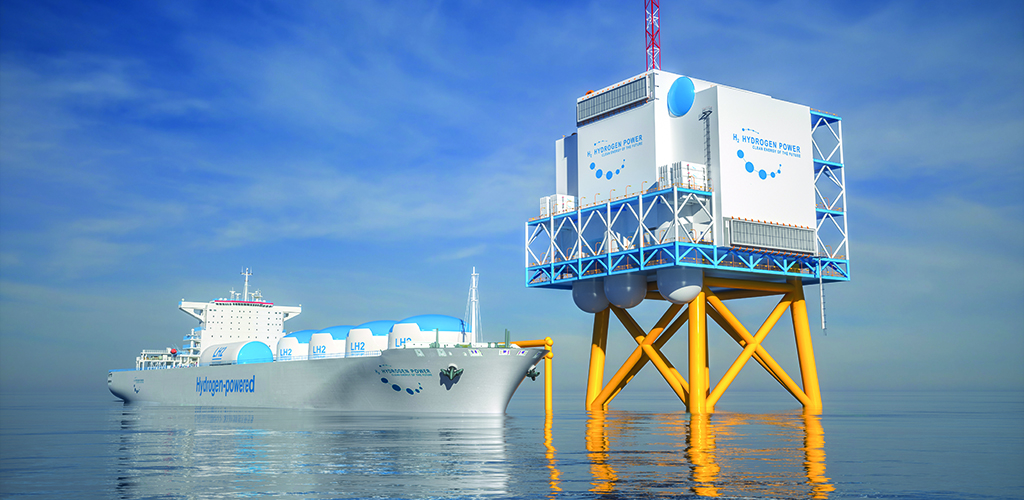Jun 25 | 2021
Measuring Carbon Footsteps Needs Big Step Forward

By Stephen Spoljaric
 Logistics has an important role to play in tackling emissions. When the topic of carbon footprint is discussed and how we develop consistent measures, I think about the progression of safety standards. The U.S. Occupational Safety and Health Administration was created in 1971, which means in the thousands of years of construction projects, only in the last 40 years have we developed globally acceptable norms.
Logistics has an important role to play in tackling emissions. When the topic of carbon footprint is discussed and how we develop consistent measures, I think about the progression of safety standards. The U.S. Occupational Safety and Health Administration was created in 1971, which means in the thousands of years of construction projects, only in the last 40 years have we developed globally acceptable norms.Today, if you search for “logistics carbon footprint calculator,” you will find plenty of websites. By completing some basic information of origin and destination along with the weight, volume or 20-foot equivalent units, the calculator will provide scores related to “kilograms CO2 per TEU kilometer” and “total CO2 emissions per tonne.” Another website has a calculator that provides an amount of “kilograms of CO2,” but doesn’t express the unit of measure to develop a ratio. Yet another website provides different output measures. Ultimately, I feel this indicates from the number of websites that the topic is continuing to grow in importance in our industry and to our clients, but it also emphasizes the inconsistency of how carbon footprint is measured and reported.
Similar to the example of safety standards, we will need to quickly accelerate efforts considering the IMO 2050 goals to reduce greenhouse gas emissions by 50 percent in 2050 as compared with 2008, which we have less than 30 years to accomplish. Bechtel is working closely with our customers to identify what is important for them in both measuring and implementing ideas on how to become more sustainable companies. Reviewing the quality and performance of those programs will require metrics. Neutral parties, such as universities and industry groups, could help to gain collective industry input to ensure a standard approach.
Plans for Progress
To truly make progress toward sustainability and reducing emissions, networks of low-carbon fuel storage and delivery facilities may need to be set up. But for which fuels? And why would anyone invest in fuel infrastructure when there are few shipping lines, railroads or trucking companies with the modal assets ready to use the LNG, hydrogen or other environmentally friendly fuel?
This is truly the “chicken or egg” dilemma. Some carriers are looking at soliciting expert input on developing their strategy for this network of production, supply infrastructure, storage, and propulsion/engine technology. All of these subjects are intertwined and dependent on each other. I would also mention that global supply chain and sourcing strategies change over time, influencing popular trade lanes.
I would encourage the maritime industry to meet and learn from the auto industry. The electric vehicle network has developed practically over the past 10 years, and I’m sure there are many lessons learned from their evolution.
In a similar way, we need to determine if marine vessel fueling locations should be in the same place geographically as they are today, if previous infrastructure can be modified or if completely new facilities need to be built. Some carriers have talked about dual-fuel ships that could rely on traditional marine bunkers but also have the capability to burn alternate fuels such as LNG, hydrogen or ammonia. This would be an initial step in the right direction but will probably require more aggressive development over time.
Bechtel’s interest in partnering with our logistics service providers as well as our customers will ensure mutual efforts for meeting these long-term sustainability objectives, leaving a lasting positive impact in the projects we support and a healthier society.
2050 is clearly the tipping point and we need to get to net-zero emissions and help our customers, partners and suppliers get there too.
Stephen ‘Spo’ Spoljaric is Bechtel’s corporate manager of global logistics, Bechtel distinguished technical specialist and president at the U.S. Exporters Competitive Maritime Council.



